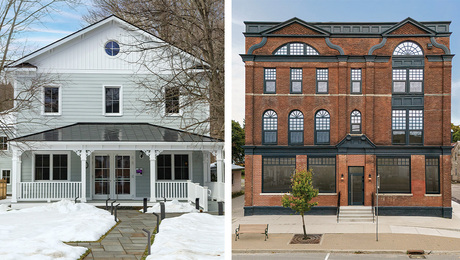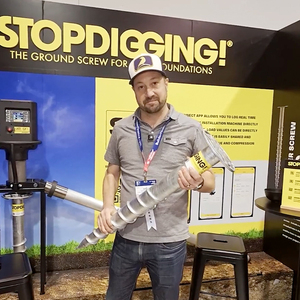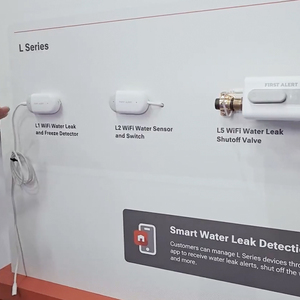Presently, I have my reverse osmosis water filter unit hooked up to a line that is coming out of the water softener.
Would it be better to have it hooked up to the well water instead?
It’s been like that for over a year. Why I thought of it now is a mystery.



















Replies
I am shopping a new system for my own house... and every company I have talked with is showing the filter before the water softener.
The explanation that has been given to me is that the "filter first" will extend the life of the water softener.
Quite a few have recommended only the reverse osmosis system (no softener)... but we rather like soft water... thus why we are looking at both.
My own thought is that the filter system would remove any "softening" in the water, also. That thought could be wrong, i guess... but it does follow my hillbilly logic!! :)
The revese osmosis (RO) system can be installed either in the softened water supply or not, it doesn't really matter.
The RO system is not really a filter, though it is sometimes refered to as "ultrafiltration". A whole-house cartridge filter upstream of the water softener (and everything else) is a good idea.
Watersofteners and RO system are not used for the same purpose, so the decision is not either/or. If you have hard water then an RO system is not an economical alternative to a water softener.
Some folks don't like softened water for cooking and/or drinking, so an RO system is installed on an unsoftened supply at the kitchen sink for drinking water, etc. BTW, the RO system will not remove the "softness" of the water, which is a lack of calcium carbonate (primarily). Though as a by-product of the typical ion-exchange softening process, sodium ions are in the softened water, the RO will remove most of that, and other dissolved minerals not affected by the softener.
So the ro should go on the well water line? Not on the softened water line? I'm not sure what you said.
Opps! I looked at your message again and you said it doesn't matter.
Edited 3/23/2005 10:55 am ET by david
Though as a by-product of the typical ion-exchange softening process, sodium ions are in the softened water, the RO will remove most of that, and other dissolved minerals not affected by the softener.
Sounds to me like the real ideal system would be to put an ordinary couple of cartridge filters before the softener, then the RO after the softener.
I've been of the opinion that I'll never use a water softener anyway, but if I were ever going to, that is how I would set it up. Reading this makes me less set against a softener. Just still set against one, unless there is RO after it.
The person you offend today, may have been your best friend tomorrow It is easy to be friends with someone you always agree with.
"Sounds to me like the real ideal system would be to put an ordinary couple of cartridge filters before the softener, then the RO after the softener. "
If you goal is to produce very pure water, then a combination of treatments is the only way to go. Now, very pure water in the industrial sense of the word, like that which a power plant's deionization system would produce, is too pure for consumption and tends to be a very effective laxitive. It is also very expensive to produce, and is far beyond the needs of a home.
For residential use, a cartridge filter is good idea to keep any suspended junk out of the water. If you have hard water AND you don't like it (some folks like hard water, i'm not one of those people), there is no real viable alternative to a softener. RO systems taht are capable of producing whole house, on demand volumes of water )like 5 to 10 gpm) would be too expensive to consider. I designed a large system for a power plant about 13 years ago, and the cost was about $1/gpd. At 5 gpm, that would be 7200 gallons per day (gpd) and $7k in cost. There are many variable in RO systems as well, and one is how much do you want to remove from the "purified" water stream.
The little trickle of water produced from an under the sink "RO" system is not quite the same and it is really only filtered water. A true RO system has 3 streams of water, raw supply, effluent and concentrate or discharge.
I don't know why you're set against the standard water softener, unless of course you have no need for such. I have a well that is set 250 ft into limestone and the water is extremely hard. While doing some service on the equipment, my softener was removed for a few days, and the difference was very noticeable. I could never live without my softener where I am now.
Dead set.For one, taste.The biggest reason though, is all that stuff put into the water.Don't care to be drinking that stuff...
The person you offend today, may have been your best friend tomorrow It is easy to be friends with someone you always agree with.
I know a little about water and its impurities, common treatments and the like, and I'm fairly familiar with the operation of water softeners. I am curious as to what you mean by "all that stuff". Basically, water softeners exchange one metal ion for another metal ion,Na for Ca. If there's something about softener operation that need to be explored a little, this is as good a forum as any, right? I'm not trying to change your mind, just understand if there is something I'm missing.
Taste is alone a good reason not to soften your water. I make beer, and I do so with unsoftened water. Taste, or at least the desired taste I'm hoping to create, is one of the reasons I do not use softened water for brewing. Other reasons are not quite as simple but have to do with how the originators of the beer styles I like developed those styles (I like English bitters most, pale ales and the like).
This is one case where I am just a stubborn old lout.When you run a water softener, you bring in bags of salt and chemicals.All that salt and chemicals got to be going somewhere, and it seems to me like it's all going into the glass of water at the end. No thanks.It tastes strange, because it IS strange.Just call me the water industry's version of a luddite...
The person you offend today, may have been your best friend tomorrow It is easy to be friends with someone you always agree with.
You bring in bags of salt, period. The stuff I buy as a very small amount of other chemicals to help keep the resin clean, but it's negligible. You can buy pure salt if you wish, or even potassium chloride, if you don't want the sodium. But the amount of salt in softened water is really incredibly low. Most of the salt does down the drain during recycling.
Softening does change the taste slightly. But water taste is a baby duck thing -- you like what you're used to. I've seen folks rave about well water that turns my stomach.
If you want hard water for drinking, it's generally a simple matter to rig hard water to the cold faucet in the kitchen, keeping everything else soft. In our area it's especially important to have soft water in the toilets, since otherwise they lime up rapidly.
Fair enough. Details and technical information will not change your perception on this one, so I'll keep those to myself. This is not a critical issue. I filter my drinking water, post softener and as I posted before, the softened water doesn't go in my beer.
You'd best stop eating too if you're that concerned about how much "extra" salt softened water contains. <G>Misconceptions abound concerning this.Unless you have a serious dietary salt-related health problem, it's insignificant. And an RO would take care of that little bit, too.There are also $$$ benefits of softened water as concerns the longevity of your plumbing. http://www.tommydorsey.com/faqs.html Knowledge is power, but only if applied in a timely fashion.
Rich,
I live in an area that has hard water. I installed a "rust and dirt" on my home. Filter cartridges go down to 5 micron. Set them up in tandem for flow. Self regenerating softeners have been banned where I live because they are putting to much salt into the riverbed. I was given a set of those magnets that clamp to the pipes. I don't know if they work but since they were free, I put them on. I have an ro system under the kitchen sink.
FWIW. I've come to several conclusions:
The rust and dirt filters make a big difference in the quality of water.
I have about the same calcium build up as neighbors that have a softener.
My ro filters last longer than my neighbors who don't have any filtration.
I don't have any trouble making suds. Some of the neighbors without softeners complain about this.
I have noticed that if I fill my spa with unfiltered water it takes more chemicals to balance it.
Hi, I'm Len and I'm a Toolaholic...
It's definitely good to have a filter ahead of the softener -- in places like ours it removes a lot of silt and a goodly amount of rust before it can poison the softener.I use a 15micron large size filter, so that it doesn't create much back pressure and I don't have to change it very often (every 4-6 months).The magnets are useless.
It mostly doesn't make any difference. If the water is exceedingly hard, using soft water may extend the life of the RO unit a bit, though probably not substantially.
Thanks!
http://www.goodwaterco.com/watereducation/reverseosmosis.htm
Thanks for the link Goldhiller. I might do business with them in the future if the RO breaks down. I just went to Lowes and bought the cheapest model I've found. It work O.K. I put a new filter in it once in a while. I think it needs one now.